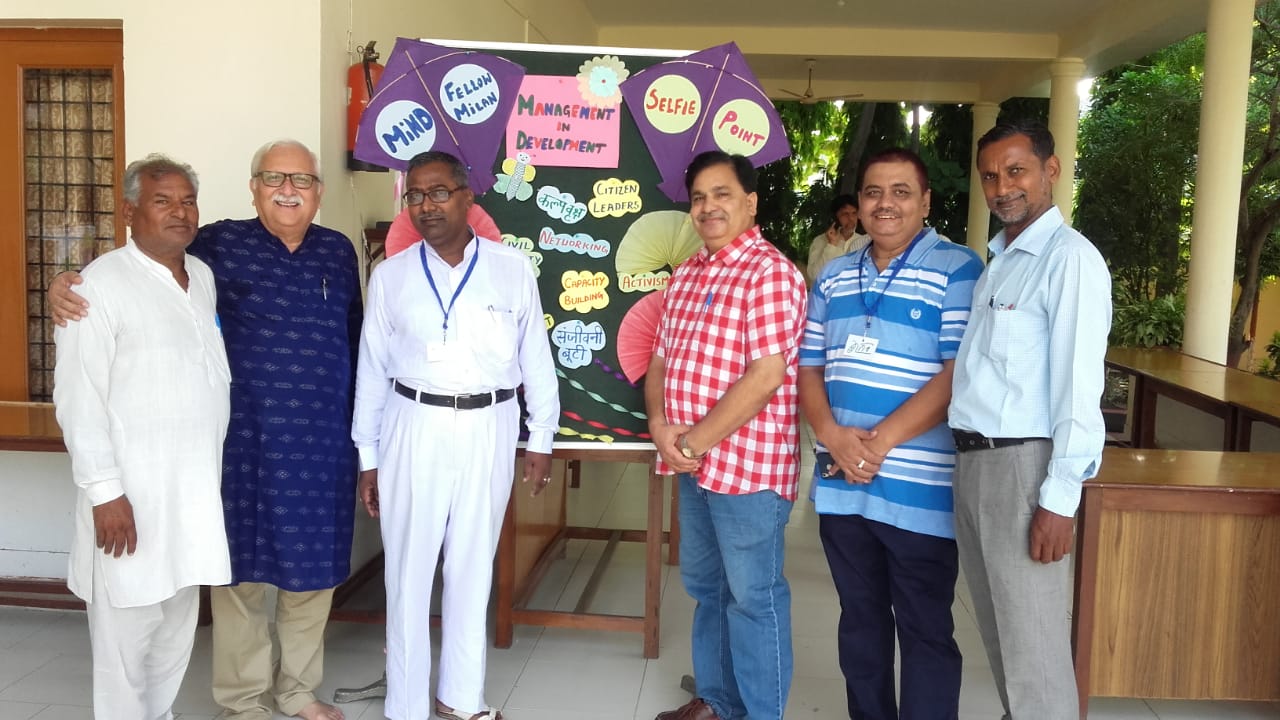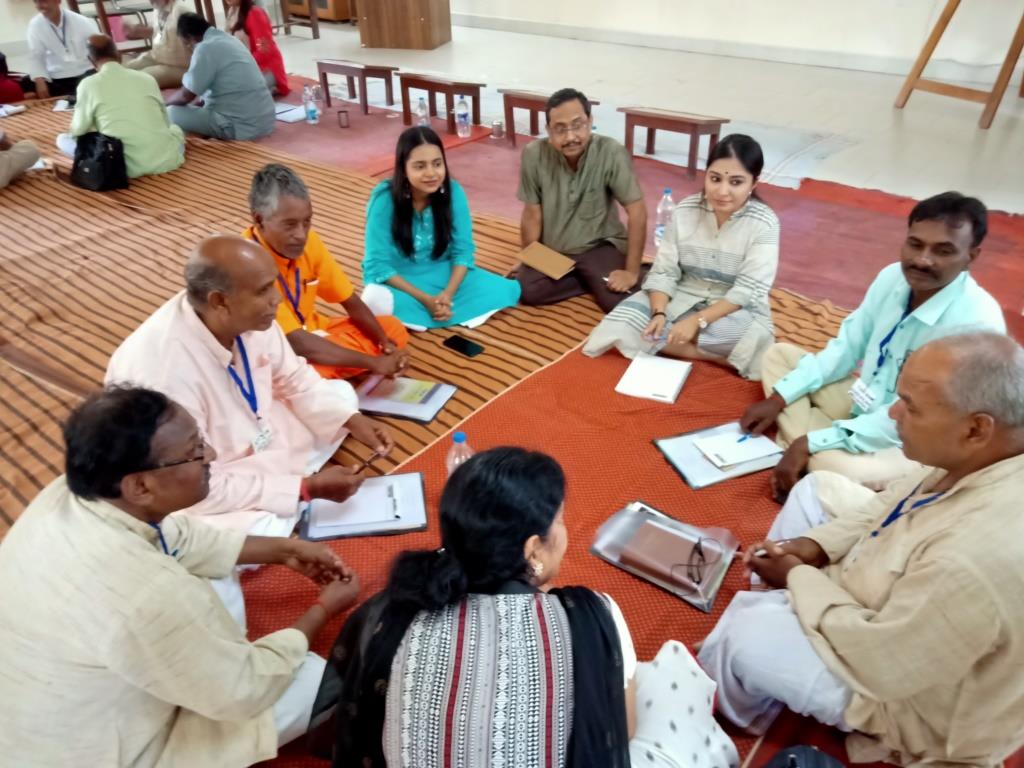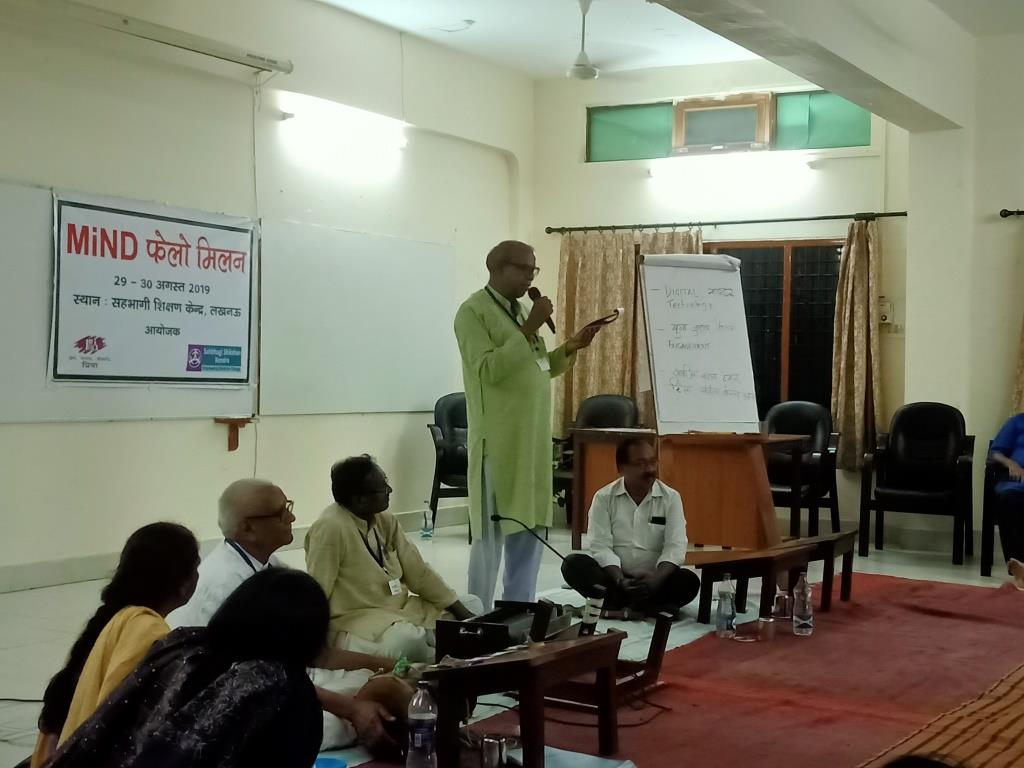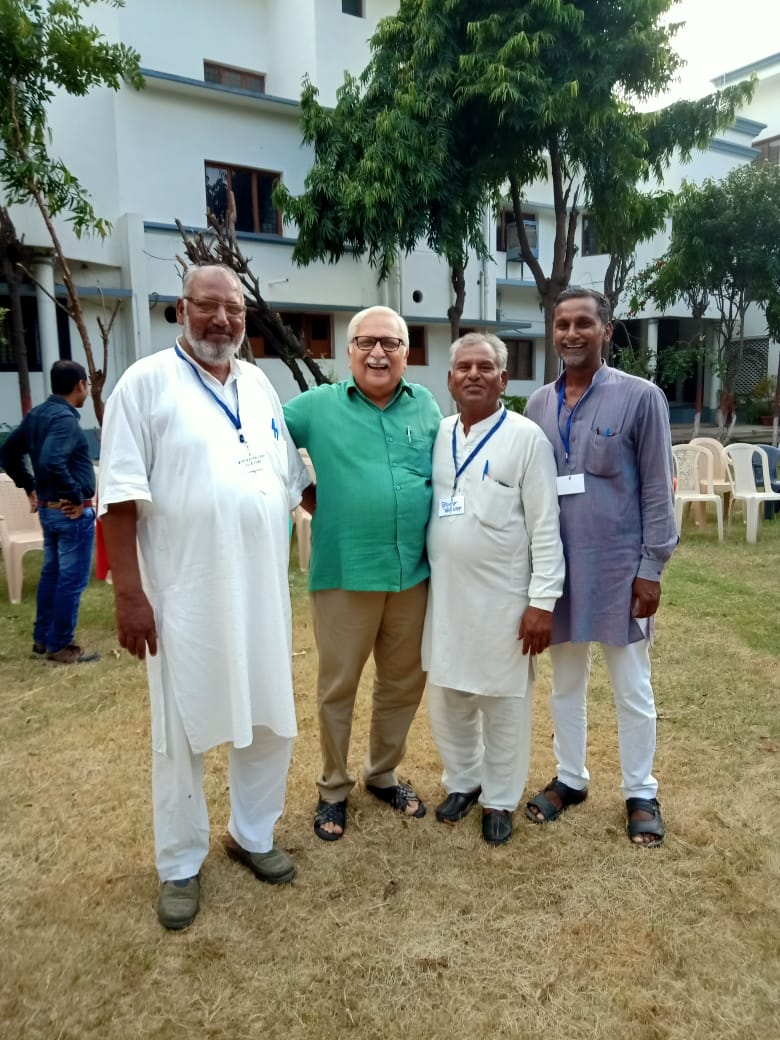| Date 29-Aug-2019 to 30-Aug-2019 |
Location Lucknow, Uttar Pradesh |
Format Institutional |
In the 1990s, PRIA (Participatory Research in Asia) focused on innovations in institutional strengthening and learning of organizations. Systematic opportunity for learning skills was provided to catalyze the emergence of citizen leaders, voluntary enterprises and civil society in regions of India which have traditionally and historically been underdeveloped. PRIA started Management in Development (MiND), an incubation program to build social entrepreneurship in Rajasthan, UP, Bihar and Jharkhand. On 29 and 30 August 2019, PRIA organised a reunion of about 30 MiND Fellows to share their journeys, both personal and professional, and learn new ways of ensuring inclusive development for the poorest and marginalised sections of our society. The milan was held at Sahbhagi Shikshan Kendra (SSK), Lucknow.


The MiND or Management in Development program was a flagship initiative. Implemented in three phases (from April 1995 to March 1997, April 1997 to March 2000 and March 2000 to March 2002), the program aimed at strengthening local human and institutional capacities in four states, namely, Bihar, Uttar Pradesh, Rajasthan and Madhya Pradesh. Conceived by PRIA, it was rolled out in partnership with six Regional Support Organisations (RSOs) -- Sahbhagi Shikshan Kendra (SSK), for Uttar Pradesh; Samarthan, for Madhya Pradesh; Unnati, for Rajasthan; CENCORED, for North Bihar; and Sharmjivi Unnayan and Lok Jagriti Kendra (LJK) for South Bihar (now Jharkhand).
The efforts of established voluntary organizations like PRIA in the late 1980s had been instrumental in creating a defined identity for the voluntary sector. Newer, committed individuals wanted to run grassroots initiatives to implement innovative and creative solutions to address local developmental challenges. Access to funding and capacity building support was restricted for them. PRIA conceived MiND as an incubation program for change makers at the local level who had the spirit and showed promise to run a social enterprise. Such individuals are today commonly known as social entrepreneurs, who are supported by an ecosystem, mentored through an incubation program, driven by investments from an angel investor helping them establish autonomous and sustainable organizations. As an “angel investor”, PRIA invested in the idea that wide, impactful social change requires strengthened human and institutional capacities along with access to funding.
The program was offered to a select group of Fellows in two categories -- citizen leaders and civil society groups. Citizen leaders were identified from active citizens at local level who had successfully demonstrated their abilities to address the challenges related with livelihoods and basic rights of the poor and marginalized. The roles played by these citizens were voluntary and self-driven. These individuals were awarded the Fellowship for 12 to 15 months. The second category of Fellows was civil society groups in pursuit of basic rights and democratic governance. These groups had the potential to develop as independent civil society organizations, and were in the program for a period of 1 to 2 years.
Over 100 MiND Fellows were provided intensive capacity building inputs and mentoring support along with limited financial assistance through five different stages:
a. Concept or Idea stage: Fellows selected issues they wanted to work upon, based on the needs of their community or region. The ideas that were most popular were working with panchayats to improve governance, income generation, women’s issues, health, literacy and rural and tribal development. Fellows were trained to articulate a vision and mission to achieve the chosen goals.
b. Validation stage: Armed with a vision and mission, Fellows were mentored to build a theory of change and test out their idea on a very limited scale. This required understanding of the non-profit sector in India, intensive trainings to build knowledge on the chosen sector of work, and network building support. The RSOs played a stellar role in providing such capacity building inputs, based on their expertise and experience. SSK and CENCORED provided training support related to institutional management. Shramjivi Unnayan’s focus was on income generation programs. As majority Fellows from South Bihar had chosen to work on livelihood issues, which needed more technical inputs, Shramjivi Unnayan provided linkage to experts to share knowledge. Lok Jagriti Kendra emphasized trainings on how to build and sustain networks. In Madhya Pradesh, Samarthan organized workshops on Panchayati Raj Act and Gram Sabhas. Unnati provided support in the area of decentralized planning and people’s participation in development.
c. Seed financial assistance: MiND Fellows were provided with a modest monthly stipend during the program. Start-ups require seed funding to set up an organization. Those citizen leaders who decided to set up an organization were offered a very small seed amount to help with the expenses that are incurred to register an organization.
d. Support to grow: Civil society groups who were identified with the potential to develop as strong organizations were provided intensive trainings on non-profit management, program planning, financial management, systems and process required for project delivery, and regulatory compliance on formal matters such as registration and licensing. Experienced civil society professionals and funders were invited to share their knowledge and experience of the development sector with these budding social entrepreneurs. Such meetings provided opportunities for networking and access to opportunities. Efforts were also made to link Fellows to existing, established networks/associations such as UPVAN (Uttar Pradesh Voluntary Action Network) and AGG (Association of Grassroot Groups).
e. Maturity: After 2 years of being in the program, when groups had reached a level of confidence and maturity, they exited the program. As the social enterprises began their work in earnest, they continued to be mentored through PRIA’s knowledge activities, with information about the sector, knowledge products on local governance, and training manuals on mainstreaming gender in organisations, prevention of sexual harassment at workplace, etc.
MiND Fellows continue to work at the grassroots, extending their work to new territories (villages, blocks, districts). Apart from running successful, sustainable organizations, they nurture civic engagement in ways that networks of trust are strengthened. Their ability, passion and skills to do so was enhanced manifold through the MiND program.
In the neighbourhoods of Indian villages and towns, where millions of local youth groups, mahila mandals, self-help groups, welfare societies and cultural associations continue to exist, investing in incubation programs like MiND can help build social capital to support economic growth and inclusive development.